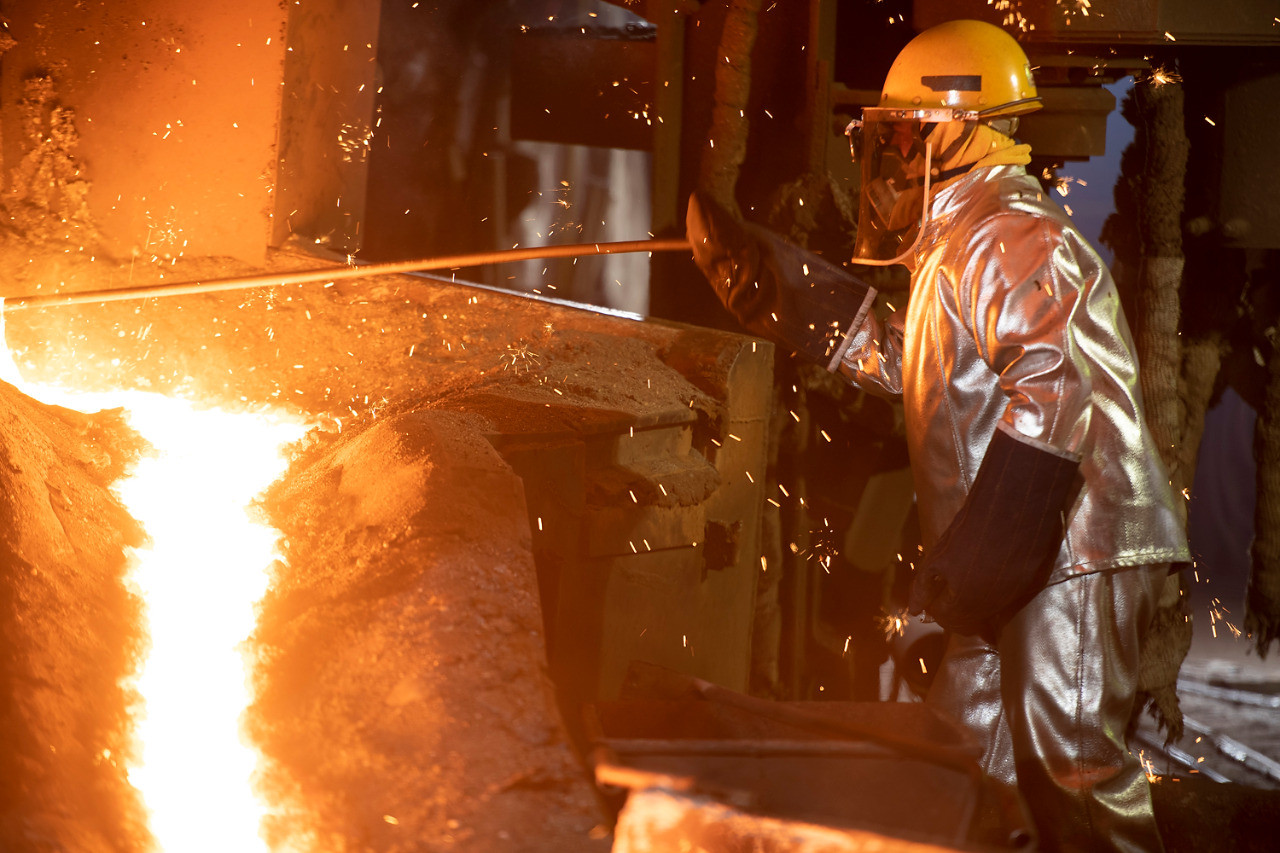Popular Reads
Top Results
Can't find what you're looking for?
View all search resultsPopular Reads
Top Results
Can't find what you're looking for?
View all search resultsIndustrialists weigh impacts of tin ingot export ban
The Investment Ministry is mulling over plans to restrict shipments of tin ingots in an effort to attract investment in processing it at home, but experts question whether an export ban could actually have a positive impact on the downstreaming of metal products
Change text size
Gift Premium Articles
to Anyone
T
he Investment Ministry is seriously mulling over plans to restrict shipments of tin ingots in an effort to attract investment in processing it at home, but industrialists question whether an export ban could actually have a positive impact on the downstreaming of metal products.
The country has a similar policy for nickel ore. However, unlike nickel, Indonesia already exports high-purity refined tin, having banned exports of tin ore since late 2014. The country exports tin bars, solder bar and wires, Trade Ministry data show.
Djoko Widajatno, executive director of the Indonesia Mining Association (IMA), said the government needed to ensure that regulations were in place to accommodate downstream industry development, as well as adequate infrastructure and demand.
Annual tin production has increased from 900 to 3,500 tonnes in the past 10 years, Djoko noted, while only 5 percent of production was absorbed by the domestic industry.
“There’s a huge gap between supply and demand [...] the government must ensure the domestic market is ready to absorb the products,” he told The Jakarta Post on Tuesday.
Meanwhile, Djoko also expected tin prices to remain on the back foot, considering consumption had been low due to rising interest rates and global economic uncertainty. Moreover, profitability was a lot less as the price had fallen quite sharply.
Benchmark three-month tin contracts on the London Metal Exchange (LME) were quoted at US$9,220 a tonne on Oct. 20, down 50 percent year-to-date (ytd), making tin the worst performer on the LME base metals complex.
The ban is part of the government’s broader plan to reserve mineral resources like nickel, tin, copper and bauxite for domestic processing, as well as to export higher value-added products instead of just shipping cheap raw materials.
Investment Minister Bahlil Lahadalia told reporters in Jakarta on Monday that the raw tin export ban would have a positive impact on mining investments and tin-derived products exports.
“[Hopefully] we will enforce the [tin export ban] sooner. To date, we have finished the road map,” he said.
Irwandy Arif, the Energy and Mineral Resources Ministry’s mining special advisor, said on Tuesday that the government was considering the export ban on tin ingot, or high-purity refined tin, to encourage domestic production of downstream products, such as tin solder, tin chemical and tin plate.
“The government has formed a working group to suggest which types of tin products are going to be banned from export,” he said in an interview hosted by CNBC Indonesia. “[The group] is also expected to come up with the details on tin industry’s supply and demand from upstream to downstream.”
High-grade ingot tin has excellent properties for electrical conductivity and is an essential element in solder products.
Indonesia is a major tin-producer and holds the world’s third-largest tin reserves, after China and Russia, International Tin Association data from 2019 shows.
The association also noted that Indonesian state-owned mining firm PT TIMAH was the world’s third-largest tin producer in 2021, after China’s Yunnan Tin and Peru’s Minsur.
The government recently also planned to raise the royalty on tin in a bid to gain more revenue amid surging commodity price.
In doing so, the government would replace the previous flat royalty of 3 percent of the selling price – based on Government Regulation No. 81/2019 – with a progressive rate that increases with higher prices obtained by producers.
“We are discussing this, running price simulations so that our country can acquire more revenue,” Ridwan Djamaluddin, the ministry’s coal and mineral resources director general, told lawmakers in a hearing with House of Representatives Commission VII in late June.
“Businesses will see lower revenue, but the drop will not be too significant. We will find the middle ground for stakeholders."
The price of tin skyrocketed during the COVID-19 pandemic as supplies were unable to keep up with rapidly rising demand. It hit an all-time high of US$49,500 per ton on March 5.










